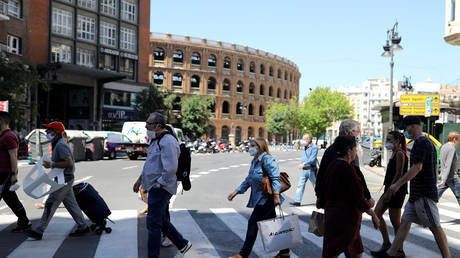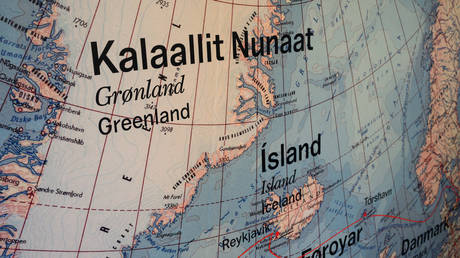
The European Commission has finally put forward its plans for post-pandemic economic recovery and is set to propose that hardest-hit Italy and Spain will receive the biggest chunks of the €750 billion set aside.
The Commission said the package of measures would be worth €1.85 trillion in total “to help kick-start” the economy and “ensure Europe bounces forward.”
Out of the €750 billion ‘Next Generation EU’ recovery fund, Italy could get 173 billion, while Spain could get 140 billion — and the fund will be offered in a combination of grants and loans, a senior EU official told Reuters.
Commission President Ursula von der Leyen said this was “Europe’s moment” and the choice was either for members to “all go it alone” or “pave a strong path” for the bloc’s future together. She described the fund as “an urgent and exceptional need for an urgent and exceptional crisis.”
Italian PM Guiseppe Conte welcomed the “excellent signal” from Brussels, tweeting that the €750 billion was an “adequate” figure. “Now let’s speed up the negotiation and free up resources soon,” he wrote. French President Emmanuel Macron also said the bloc must “proceed quickly” with the recovery plans.
President of the European Council Charles Michel called the proposal an “important step” and said “everything should be done” to reach a final agreement before summer.
Von der Leyen urged some member states to “put aside their prejudices” and support the package — a reference to the ‘frugal four’ of the Netherlands, Denmark, Austria and Finland, who have been reluctant to back plans to bail out southern states and take on debt for the greater good.
Divisions now exist within the bloc over how much of the funds will be loans and how much will be grants, with more affluent states against offering aid in grants to already indebted states like Spain and Italy.
Dutch Prime Minister Mark Rutte who has been a staunch opponent of bailing out the southern states said Tuesday that while a recovery fund was needed, he believed it should consist of loans “without any mutualisation of debts.”
Last week, Hungarian-American billionaire George Soros warned that the EU’s continued existence was dependent on whether or not it propped up ‘sick man of Europe’ Italy and that the bloc “may not be able to survive” the challenges posed by Covid-19.
Indeed, the pandemic has exposed weaknesses and faultlines in the bloc, with Brussels initially failing to come to the aid of hard-hit countries like Italy prompting widespread anger over a lack of solidarity.
Like this story? Share it with a friend!




